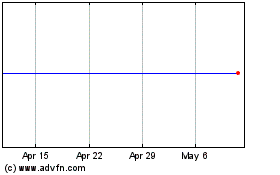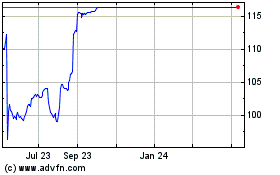Horizon Therapeutics plc Launches New Online Community Connecting People Living with Thyroid Eye Disease & Urging them to “...
November 21 2019 - 8:00AM
Business Wire
Horizon Therapeutics plc (Nasdaq: HZNP) today announced the
launch of “Listen to Your Eyes,” a new website and Facebook
community designed to provide education and support for people who
are living with thyroid eye disease (TED) – a rare, serious,
progressive and vision-threatening autoimmune disease.1,2 It was
created with guidance from the TED community to help others learn
about TED, connect with one another and get inspired to advocate
for their eye health.
“It's a really lonely feeling when you have a rare illness that
nobody understands,” said Susie W., who lives with TED. “Because
the pain that is caused by TED is so intense, and you’re hurting
all of the time, you can’t think straight. Plus, your vision is
being affected, which is very scary, and you’re being robbed of
your looks and your self-esteem. It’s all very emotional and as a
result, you tend to shut yourself off from the world. I’m excited
about this new community because I think it will help people better
understand TED and feel less alone.”
The “Listen to Your Eyes” website (www.ThyroidEyes.com) provides
key facts about TED, tips for spotting the signs and symptoms and
tools for having a productive conversation with a healthcare
provider. The accompanying Facebook community features real-life
stories and advice from people who are living with TED, including
the symptoms they experience, where they turn to for support and
how they remain hopeful in spite of it all.
“It is such a joy to be a part of this new ‘Listen to Your Eyes’
community,” said Allan H., who is part of a council of people
living with TED who provided insight and direction on the “Listen
to Your Eyes” initiative. “I’m sharing my experience to help
motivate others who are living with TED to advocate for themselves
and get the support and care that they deserve. Living with this
disease is not easy, but surrounding yourself with people who truly
understand what you’re going through and are committed to lifting
you up, can make a big difference and help you stay positive as you
continue to push forward.”
TED is an autoimmune disease that causes the body’s immune
system to attack the area behind the eyes. TED is most often seen
in patients with Graves’ disease, but can also occur in Hashimoto’s
hypothyroidism or even in euthyroid patients. Common symptoms
include light sensitivity, eye grittiness, bulging eyes and double
vision, among others – all of which can reduce a person’s
independence, ability to work and self-confidence.1,3 As TED
progresses, it can cause long-term, irreversible damage. Effective
management of TED requires early diagnosis and active monitoring to
identify the best opportunity for medical intervention.1 Patients
who suspect that they may have TED should visit an eye specialist,
such as an ophthalmologist or oculoplastic surgeon, to have their
eyes examined.
“We know that recognizing the signs and symptoms of TED early
can help decrease the chances of permanent damage to the eyes and
surrounding tissues,” said Keli Walbert, vice president,
ophthalmology, Horizon. “Unfortunately, TED is not well known or
understood. We created this initiative to help fill that void and
get patients the information and support they need to make informed
decisions about their eye health – before it’s too late. This
includes paying attention to changes in their appearance and
vision, then visiting an eye care professional at the first signs
of change.”
For more information, please visit www.ThyroidEyes.com and
https://www.facebook.com/ThyroidEyes/.
About Horizon
Horizon is focused on researching, developing and
commercializing medicines that address critical needs for people
impacted by rare and rheumatic diseases. Our pipeline is
purposeful: we apply scientific expertise and courage to bring
clinically meaningful therapies to patients. We believe science and
compassion must work together to transform lives. For more
information on how we go to incredible lengths to impact lives,
please visit www.horizontherapeutics.com, follow us @HorizonNews on
Twitter, like us on Facebook or explore career opportunities on
LinkedIn.
References
- Barrio-Barrio J, Sabater AL, Bonet-Farriol E,
Velazquez-Villoria A, Galofre JC. Graves’ Ophthalmopathy: VISA
versus EUGOGO Classification, Assessment, and Management. Journal
of Ophthalmology. 2015:1-16.
- Bartalena L, Baldeschi L, Boboridis K, Eckstein A, Kahaly GJ,
Marcocci C, Perros P, Salvi M, Wiersinga WM. The 2016 European
Thyroid Association/European Group on Graves' Orbitopathy
Guidelines for the Management of Graves' Orbitopathy. European
Thyroid Journal. 2016;5:9-26.
- Ponto KA, Pitz S, Pfeiffer N, Hommel G, Weber MM, Kahaly GJ.
Quality of Life and Occupational Disability in Endocrine
Orbitopathy. Dtsch Arztebl Int. 2009;106:283-299.
View source
version on businesswire.com: https://www.businesswire.com/news/home/20191121005273/en/
U.S. Media Contact: Rachel Vann Associate
Director, Product Communications media@horizontherapeutics.com
Ireland Media Contact: Gordon MRM Ray Gordon
ray@gordonmrm.ie
Horizon Therapeutics Pub... (NASDAQ:HZNP)
Historical Stock Chart
From Mar 2024 to Apr 2024

Horizon Therapeutics Pub... (NASDAQ:HZNP)
Historical Stock Chart
From Apr 2023 to Apr 2024
